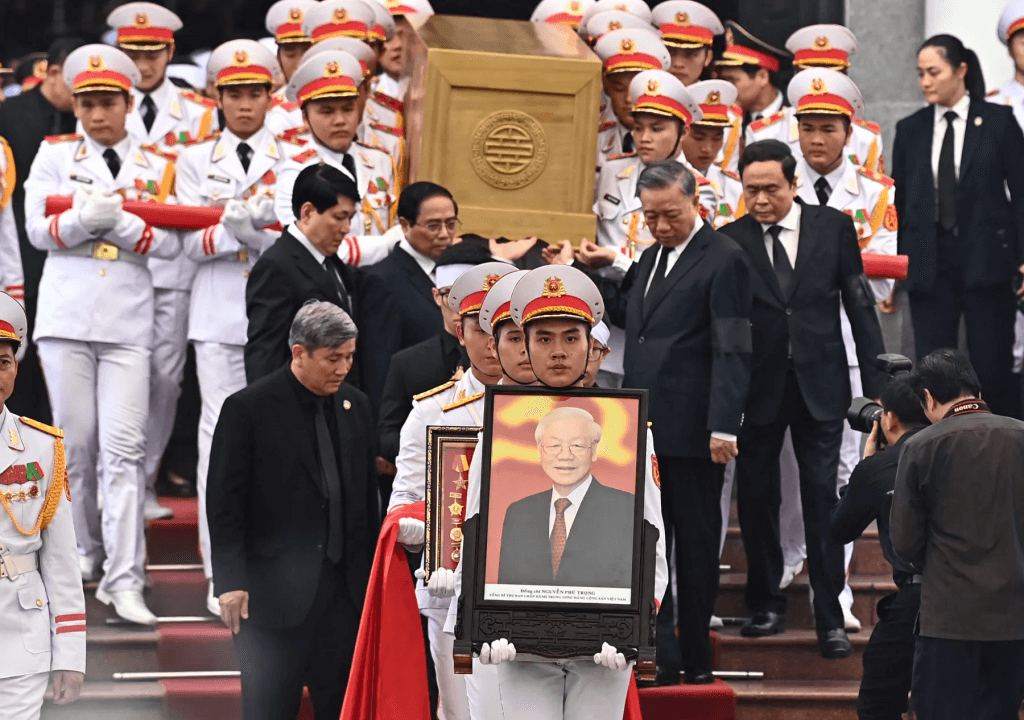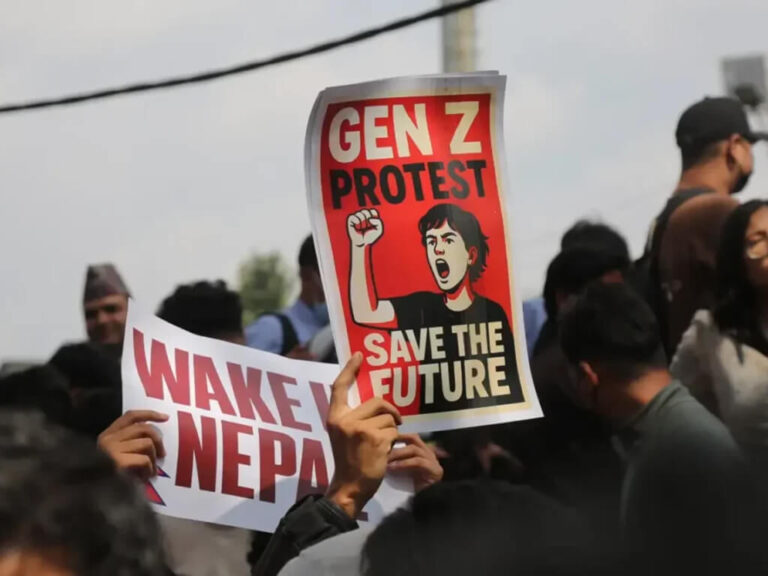Vietnamese politics is entering a new era following the death of General Secretary Nguyen Phu Trong. Trong was Vietnam’s most powerful leader in decades, having served as General Secretary of the Communist Party of Vietnam (CPV) for the past 13 years across three terms. As Vietnam is a single-party state under an authoritarian system led by the CPV, the General Secretary holds the de facto highest position in Vietnamese politics. This new era, with a new General Secretary, is being closely observed both domestically and internationally, particularly in the context of serious geopolitical tensions in the region.
Vietnamese politics remains largely stable despite frequent changes in the presidency and prime ministership, as the national congress, led by the Communist Party, makes the key decisions that shape the country’s direction. Over the past decade, Trong is credited with directing crucial policies, including those against corruption. He is arguably Vietnam’s most influential leader since its founding revolutionary, Ho Chi Minh. Trong became the general secretary of the ruling party in 2011 and made history by securing a third five-year term in 2021. He was also in the role of Vietnam’s president from 2018 to 2020. Despite the rapid changes in the presidency and prime ministership, the leadership of the Communist Party has remained stable, helping to preserve the country’s communist system. However, some uncertainty looms in Hanoi following the death of this long-serving leader. Trong left behind a mixed political and economic legacy, having overseen Vietnam’s rapid economic growth and a “blazing furnace” crackdown on corruption.
Duties temporarily transferred to Lam, the 66-year-old who became president in May and was previously Vietnam’s public security minister. Lam is widely considered as Trong’s successor, particularly because he oversees Trong’s ambitious anti-corruption drive. Since 2016, this campaign has ensnared 40 members of the party’s Central Committee and dozens of military and police generals. Although the crackdown has enjoyed public support, the removal of six out of 18 Politburo members since December 2022, including three of Vietnam’s top five leaders since March, has sparked concerns about factional infighting and fears of a potential succession crisis. Acting leader Lam will hold the position until the Communist Party’s 14th Congress in January 2026. During the next 17 months, there will be limited policymaking as the Communist Party of Vietnam concentrates on selecting new personnel and preparing policies for the Congress.
Despite the political turmoil, no change is expected in Vietnam’s foreign policy, with Hanoi remaining studiously neutral and maintaining deep economic ties with both China and the US and its allies. Observers generally viewed Hanoi’s pragmatic “Bamboo Diplomacy” under Trong’s leadership positively, as it delicately balanced relations between China and the United States amid a deepening rift with its northern neighbor in the South China Sea. However, Vietnam’s foreign policy could be influenced by external events. Potential flashpoints include Beijing’s rising assertiveness in the South China Sea, deteriorating relations with Cambodia, and possible changes in US policy under a new administration. Despite differences, Trong always maintained a good relationship with the Chinese Communist Party. Following the announcement of Trong’s death, the Communist Party of China and Xi Jinping issued a condolence message, honoring him as a good comrade, a good brother, and a good friend.
Under Trong’s leadership, Vietnam’s relationships with the US and Russia also reached new heights. Over the past 10 months, despite his health issues, Trong hosted both Xi and US President Joe Biden in Hanoi and met with Russian President Vladimir Putin in June. Hanoi has also advanced its relationships with Japan, India, South Korea, Australia, and ASEAN neighbors.
Trong did much to shape the country’s direction, and the likelihood of revising his policies or changing course is low. His successor remains uncertain, and the Politburo offers little clarity, as most recent additions have military backgrounds and are likely to be more obedient with fewer disputes. It is expected that there will be no clash in the succession. However, tough years lie ahead for Vietnam, and the Vietnam-China and Vietnam-US relationships will be tested as tensions rise in the region.








